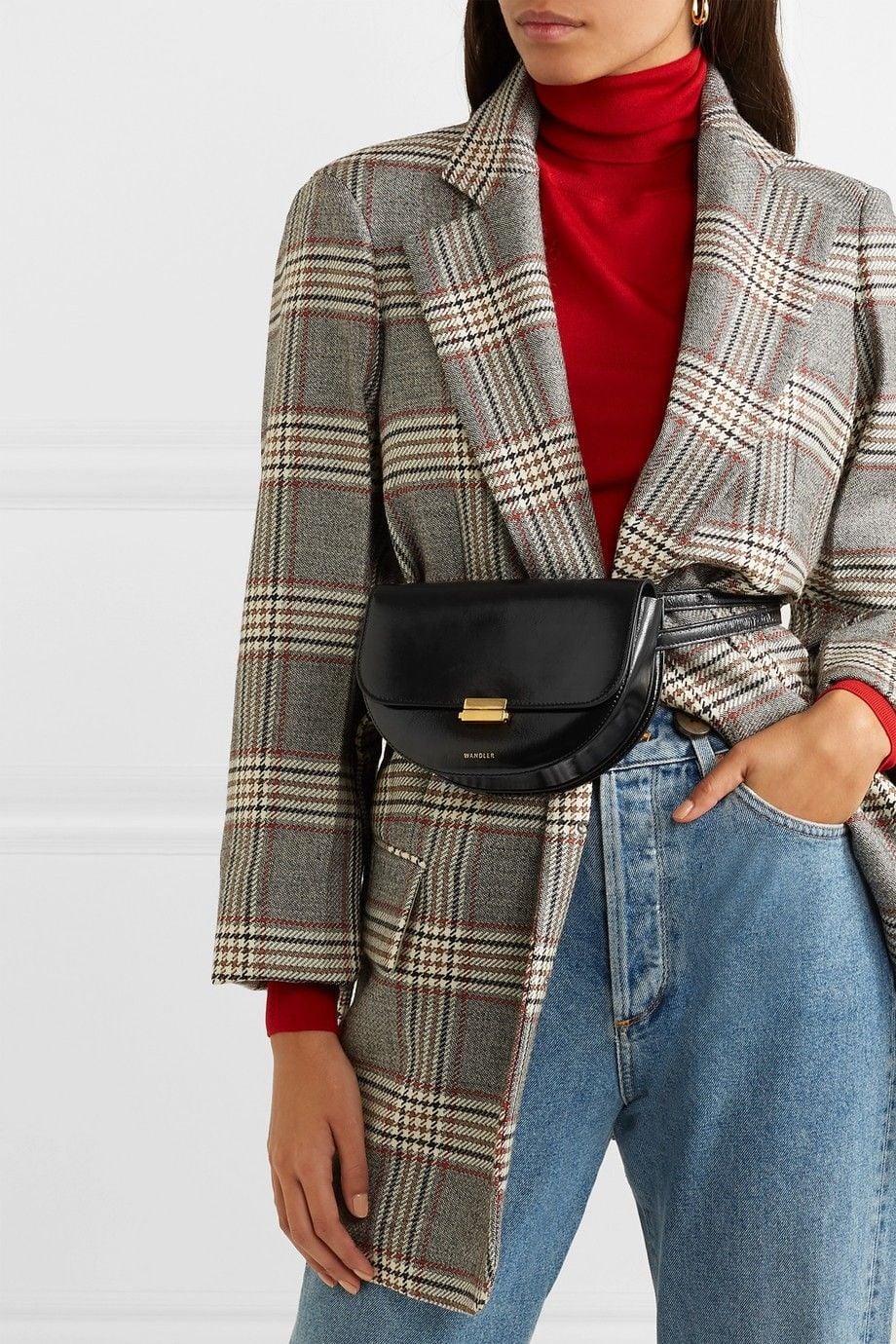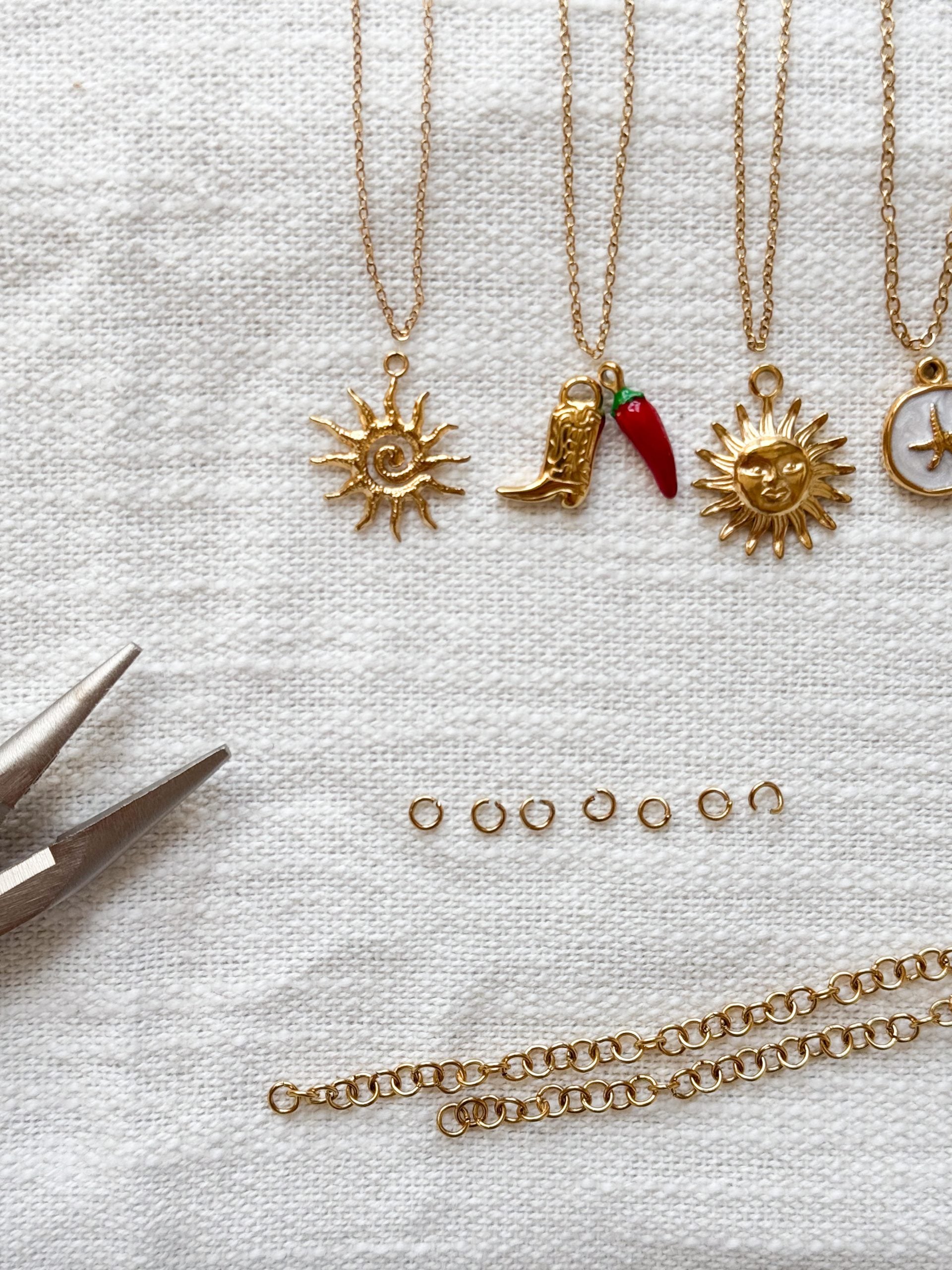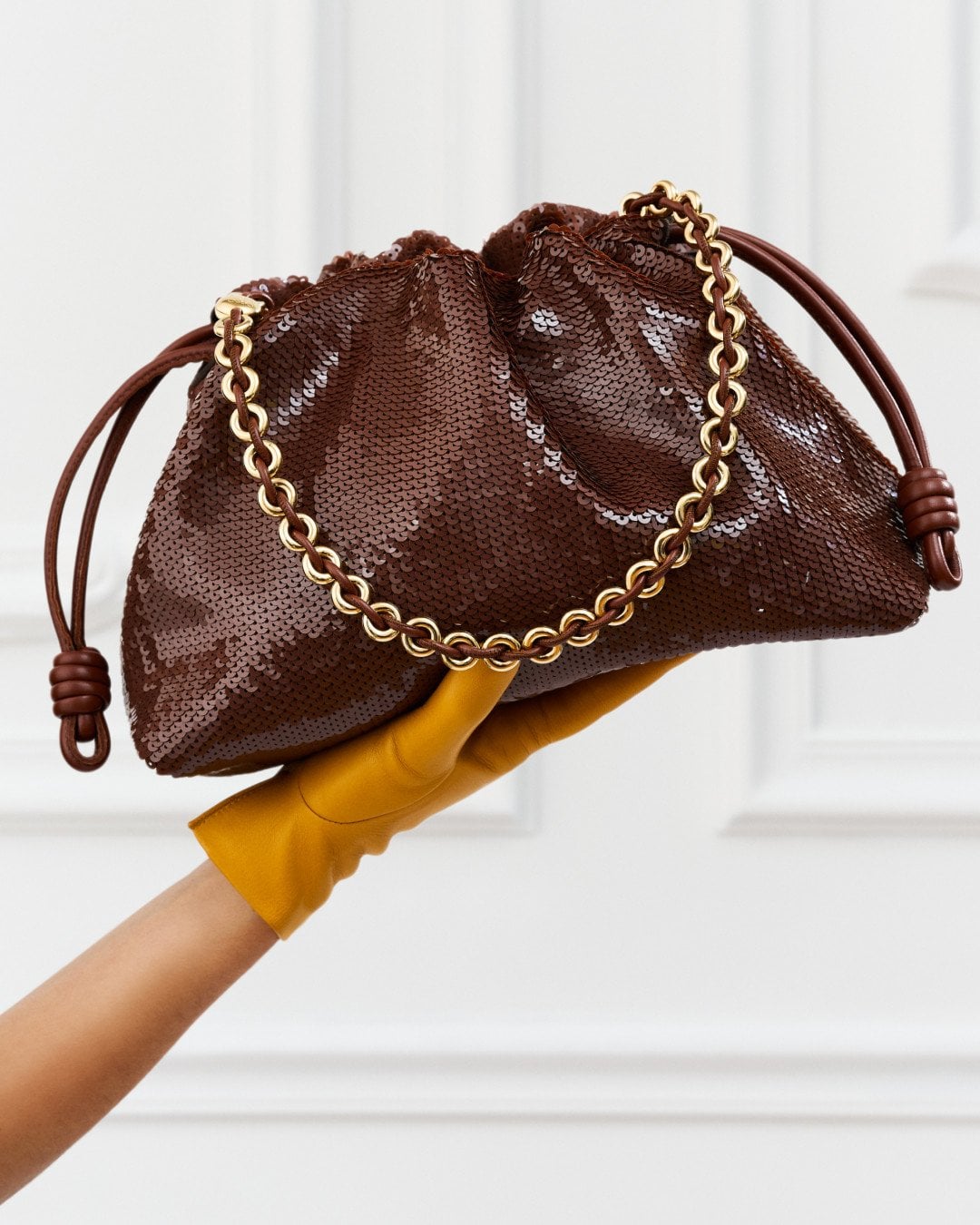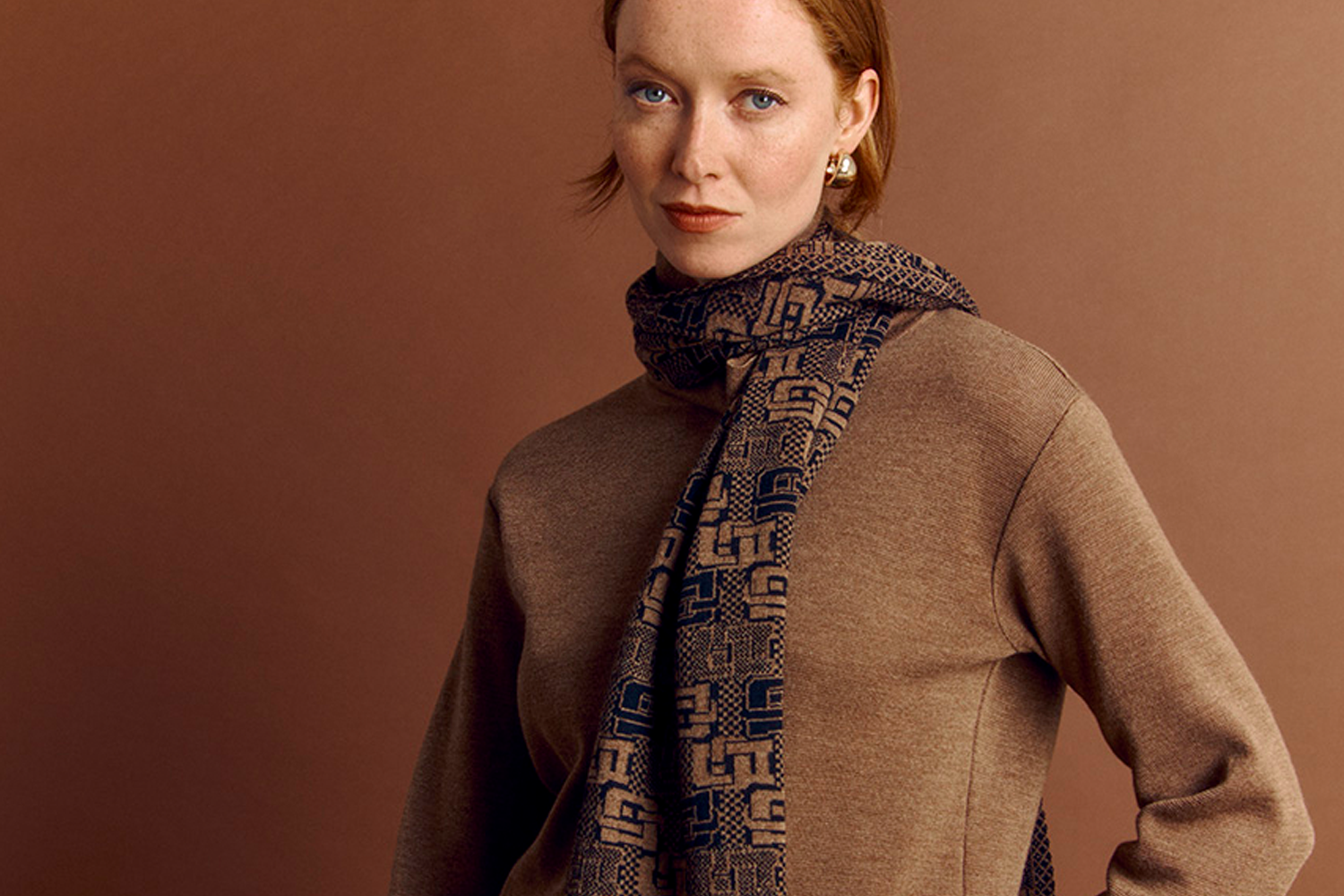
How does the Maison Devernois succeed in the bet of Made in France?
This publication is also available in: Français
Deutsch
Italiano
Español
English (US)
More and more French people desire to consume French products. And this attraction for made in France extends to food, objects, and clothing as well.
Brands have understood this well. For a few years now, we have witnessed a surge in made in France certifications on websites, advertisements, and social media, sometimes misleading consumers about the true origin of a garment’s production.
But rest assured, there are women’s ready-to-wear brands offering quality clothing produced on French territory. And Maison Devernois is one of them.
Let’s take a closer look at this French label that is committed to sustainable and local fashion.
Made in France: A Subtle Certification to Understand
While consuming made in France may seem obvious, the term itself carries subtleties that are interesting to know in order to ensure that you are truly buying a garment produced in France. Because if you had any doubts, many brands take advantage of this lack of clarity regarding the term “made in France” to deceive consumers.
First of all, it is important to understand that producing a garment on French soil is not the sine qua non condition for justifying the use of the made in France label on its products. The subtleties are more nuanced. In reality, a product takes the origin of the country where it undergoes the last transformation, which must correspond to 45% of the value added to the product in France. However, measuring this percentage is more complicated than it seems. This leaves a rather wide margin of interpretation that some brands exploit.
Ultimately, in this labeling story, the place of manufacture of a garment defines the official place of production.
As for consumers, the indicators that allow you to spot a brand that truly offers knits, t-shirts, dresses, shoes, or accessories produced in France are as follows:
- Refer to labels: France Terre Textile, Origine France Garantie, and Patrimoine vivant are three labels that guarantee French textile production. However, few brands are labeled, as the conditions for obtaining them are stringent.
- Read the product label that mentions the country of manufacture.
- Check the brand’s website. If it strives to be transparent in its communication, values, manufacturing process, etc., it is very likely that it honors its commitments.
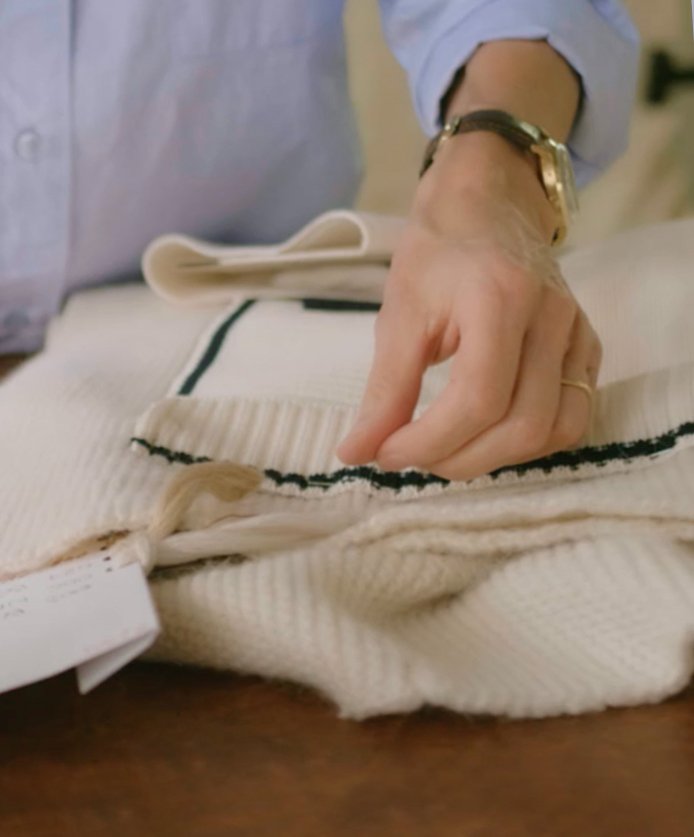
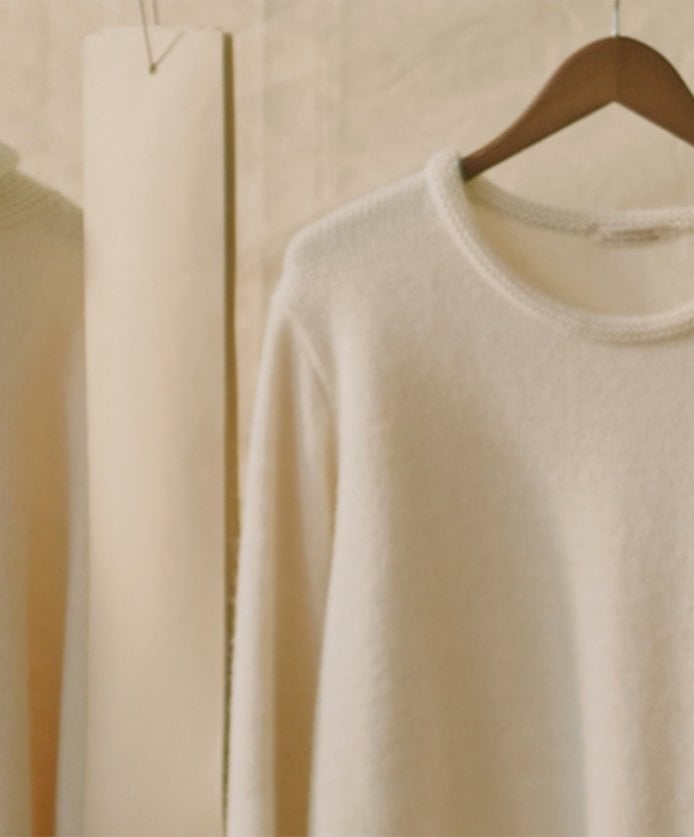

Knits and Women’s Clothing Made in France: The Example of Maison Devernois
Now that you know how to identify a responsible brand that offers all or part of its textile range produced (mostly) in France, let us introduce you to a women’s ready-to-wear label: Maison Devernois. Founded in 1927, the house is committed to a sustainable and responsible women’s wardrobe with a range of knits produced in France. Here’s a spotlight.
A Proud French Know-How
For 95 years now, Maison Devernois has been crafting French knits from its workshops located in Roanne, the historical cradle of French knitwear. For nearly 100 years, several generations have succeeded one another, but the spirit of the French workshop has endured. It is to showcase French know-how, expertise, and craftsmanship that the house has never ceased to create.
Today, in the creation of pieces, every detail matters. The threads are carefully selected, each material blend is tested, the color palette is continuously renewed, the finishes are sometimes completely reinvented, and the patterns are studied meticulously—all to offer women’s clothing of quality, made in France and imbued with a certain elegance to serve a fashion that is fair, timeless, and responsible.
A Model Focused on Responsible Fashion
It thus seemed natural for the house to commit to sustainable fashion. The goal of the Devernois label is to dress women without undressing the planet. To achieve this, the French company has introduced wool and French linen, recycled cotton, or artificial and ecological materials such as Tencel® or EcoVero® certified viscose into its collections for several seasons now.
Quality is also prioritized over quantity. For example, the collections are designed to systematically include timeless garments that women can wear for a long time. Ultra-limited collections made from dormant stock are also offered, as well as an “outlet” tab featuring old pieces at mini prices. The goal? To contribute to the normalization of sustainable fashion, reduce waste, and combat overproduction.

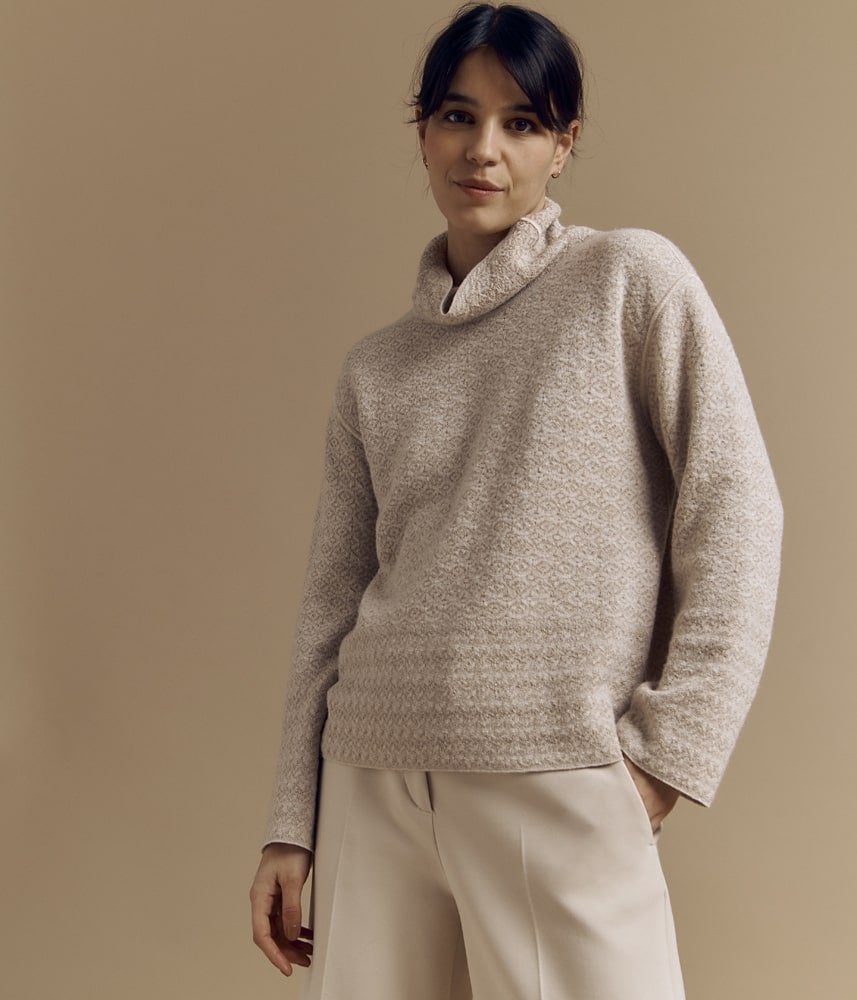
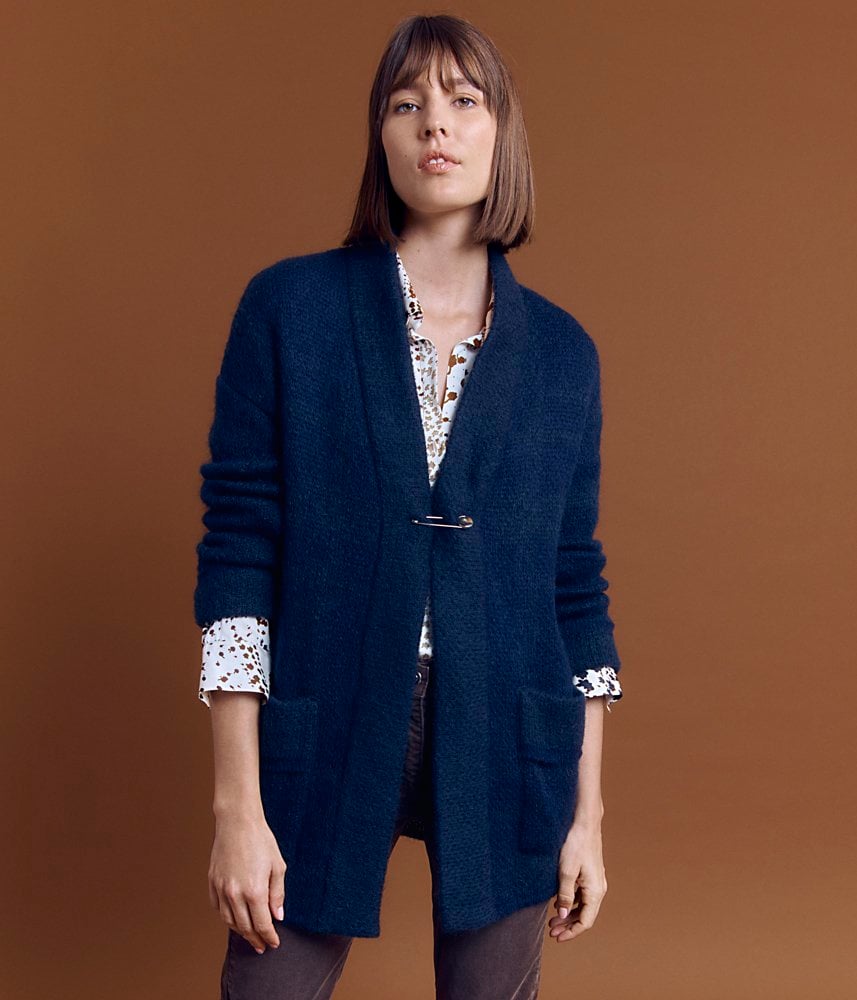
A Thoughtful Production
The commitment is also internal. In the production process, fabric scraps are never left unused. For example, processes have been developed to knit the pieces in one go. The patterning also aims to be as economical as possible.
But the house knows it is not perfect. Sometimes certain fabrics or knit panels remain unused. In this case, as Séverine Brun, collection director, states, “we double our imagination to give them a second life.”
A Respected Short Circuit
Working with French partners is at the very heart of the Maison Devernois approach. For instance, 25% of the Autumn/Winter 2021 knit collection is 100% made in France. The knitwear is also washed in a workshop near Roanne. And for certain pieces, the house has called upon French artisans for sourcing.
However, the brand also collaborates with European partners for other products such as blouses, shoes, or jewelry. In this trusting relationship that the house has maintained for years, suppliers are carefully selected, and raw materials are chosen for their quality.
Cover image: © Maison Devernois
